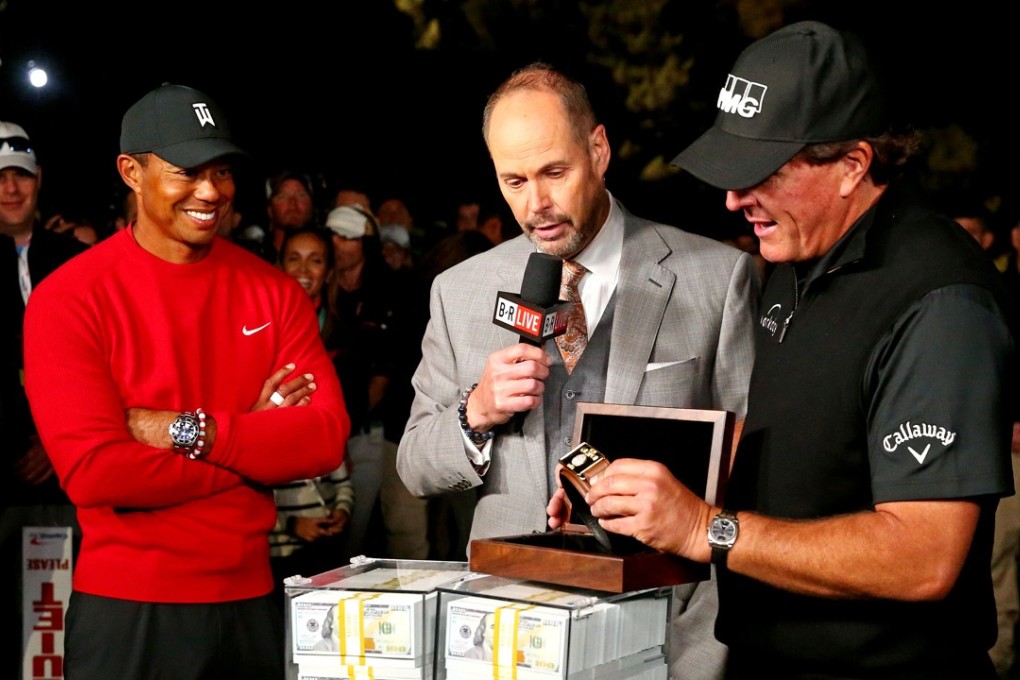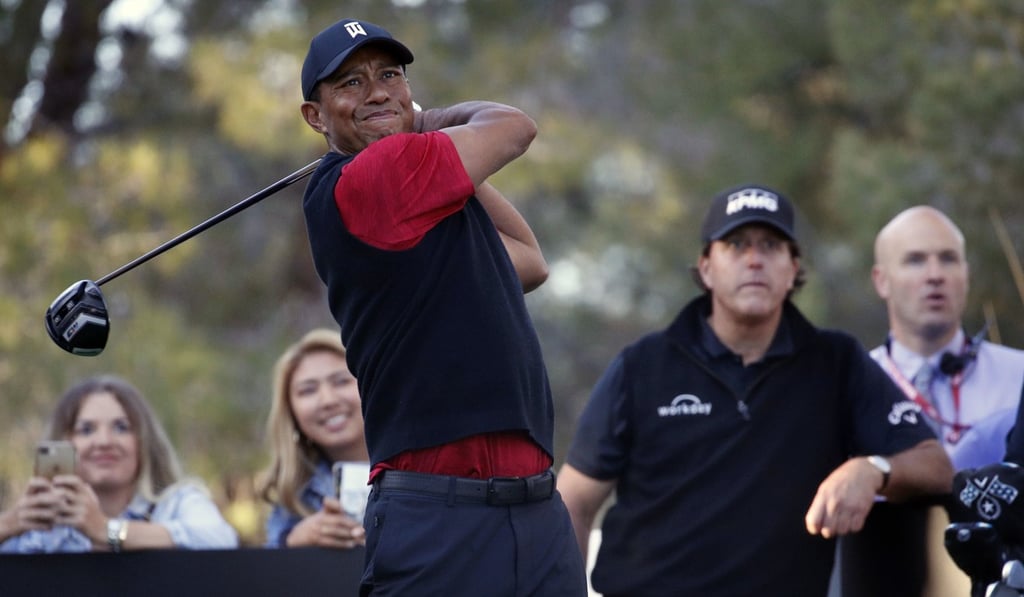Advertisement
Opinion | The Match: Tiger Woods v Phil Mickelson’s criticised pay-per-view might well be the future of sport, just ask Floyd Mayweather
- Golf’s first ever pay-per-view saw Mickelson take the US$9 million prize pot in Las Vegas
- Broadcasters looking for new ways to find viewers will push sports towards gimmicks like The Match
Reading Time:4 minutes
Why you can trust SCMP

The Match. It’s a singular name for what might not be a singular event.
Tiger Woods and Phil Mickelson shot it out in Las Vegas last Friday while the rest of the country recovered from their Thanksgiving excesses.
The real turkey was the day after in a match that did not live up to the hype but still might point the direction of sport in the near future.
Advertisement
Golf’s first ever live pay-per-view event had its teething issues but it will be back, one way or another.
Advertisement

This is the direction that sport is going, the grand event designed to get as much attention as possible but instead of getting those people into the stadium, they want their pay-per-view dollars.
Advertisement
Select Voice
Select Speed
1.00x
